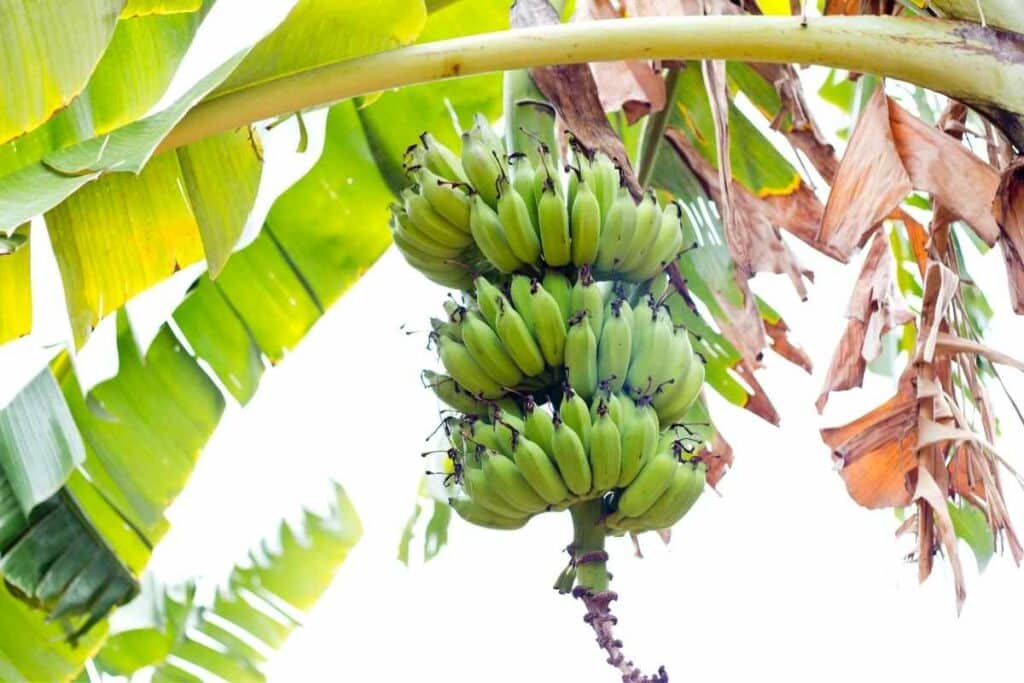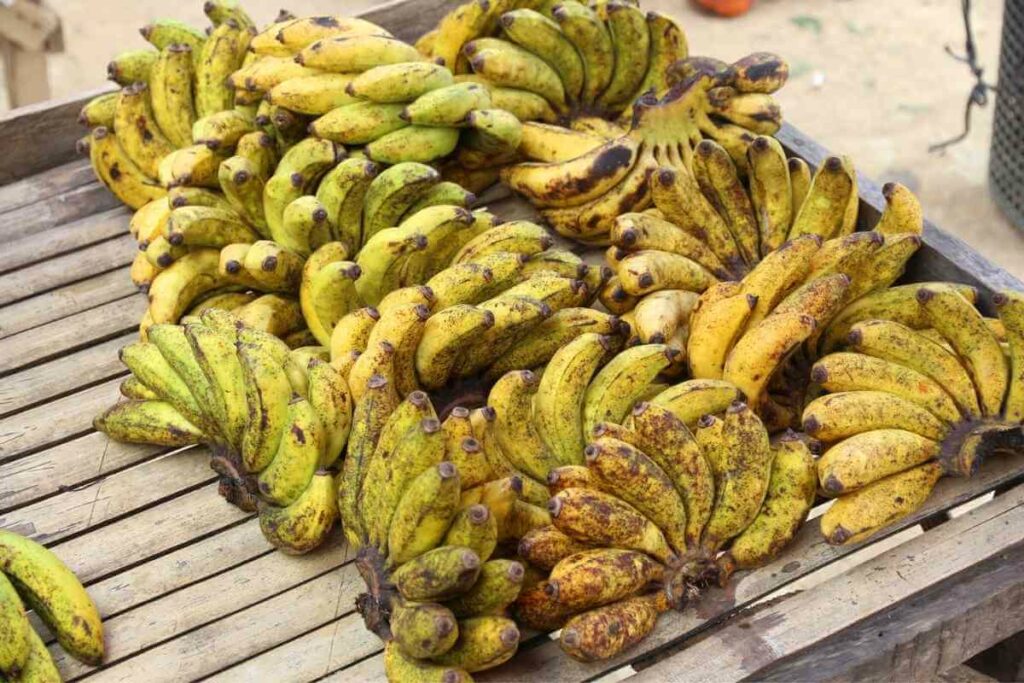Food safety and health security should be the top priority for any government in today’s fast-paced lifestyle.
Nonetheless, most of us are being duped by farmers who sell chemically treated goods (mostly fruits and vegetables) under the guise of being naturally farmed.
Bananas provide several health advantages since they include all vital nutrients and minimize the risk of certain diseases.
These advantages, however, are only available if you consume naturally ripened bananas that have not been gassed with artificial ripening agents.
The USDA Organic Rules prohibit certified organic producers from using any artificial methods when farming.
The unfortunate aspect is that some organic fruit merchants utilize specific chemicals to increase the amount of ethylene (a natural ripening gas associated with ripening bananas) present in the banana to speed up the ripening process.
These substances are extremely hazardous to the human body.

Chemicals employed to ripen bananas:
- methanol
- ethanol
- ethylene glycol
- calcium carbide
- and Ethephon
How to Identify If an Organic Banana Has Been Gassed
| Properties | Organic Bananas | Organic Bananas |
|---|---|---|
| Taste | Have high quantity and composition of sugar levels | Have less quantity and composition of sugar levels |
| Smell | Isoamyl acetate is more volatile | Less isoamyl acetate levels |
| Color | Have few spots here and there | The fruit has a uniform color |
| Polyphenol levels | High | Low |
| Sucrose levels | High | Low |
Non-organic bananas are sprayed with synthetically produced ethylene gas to accelerate ripening.
Organic bananas are not sprayed but instead emit natural ethylene gas as part of the ripening process, as do many other fruits.
However, you’ll be surprised to learn that some organic banana providers artificially ripen their bananas. This is not right.
Here is how to identify if the banana has been chemically ripened.
Appearance
Do not choose fruits that are appealing on the outside rather those that are beneficial to your health.
Fruits with a ‘handsomely’ uniform color are more likely to have been artificially ripened.
When compared to chemically ripened bananas, naturally ripened bananas do not have a uniform color on the outside and may have a few spots here and there.
On the other hand, chemically ripened fruit will have certain sections that are greener and others that are yellow.
This is because the ethylene gas or other chemicals do not touch every portion of the banana. As a result, the fruit ripens unevenly. “All that glitters is not gold,” as the saying goes.
Always inspect the stem:
- If it is green while the fruit is yellow, it is a dead giveaway that the fruit has been artificially ripened.
- Bananas that have naturally matured have a black or brown stem. It also has dark yellow skin with black and brown markings scattered all around it.
- Bananas that have been artificially ripened, on the other hand, are seemingly uniform, with lemon yellow skin. They have a green stalk as well.
- The black stems on the ostensibly naturally ripened banana might be a symptom of crown rot, a fungal infection.
The black dots on the “chemically ripened” banana look like senescent spots, a hallmark of aging or over-mature bananas.
Texture

Organic bananas that have been artificially ripened will have some extremely soft sections and others that are quite rigid.
This is because some sections may come into touch with chemicals while others may not.
What Are the Ripening Agents and Harmful Effects of Consuming Gassed Bananas?
Fruit ripening chemicals such as unsaturated hydrocarbons (ethylene and acetylene or calcium Carbide) stimulate the ripening process and induce color changes in the fruits.
However, the use of Calcium Carbide (CaC2) for ripening has been banned in some countries.
Best Way: The health advantages of fruits, however, are dependent on how they ripen. Allowing them to ripen naturally is the best option.
Calcium carbide
Calcium carbide is a recognized carcinogen, which is a substance that causes cancer.
Even in modest amounts, it is known to have negative effects on the liver and other organs of the body. Higher levels of exposure may result in a buildup of fluids in the lungs.
Due to phosphorus and arsenic poisoning traced in this dangerous chemical, eating artificially ripened bananas with this gas causes:
- diarrhea
- weakness
- vomiting
- burning sensation in the chest and abdomen
- permanent eye damage,
- burning of skin and eyes
- difficulty swallowing
- irritation in the nose, throat, and mouth
Ethylene
Ethylene has minimal toxicity to humans and is unlikely to have any negative health impacts.
Inhaling air with exceptionally high quantities of ethylene, on the other hand, can cause headaches, nausea, sleepiness, weakness, dizziness, and unconsciousness.
Still Worth Buying Organic Bananas?
Organic has become a marketing phrase, particularly if you reside in a nation misled into developing an organic certification system. In nations with rigorous labeling standards, it is reasonable to presume that bananas labeled “organic” are indeed “organic.”
Some organic growers gas their bananas so as to increase their shelf life while others don’t. Each banana producer has its unique process for ripening organic bananas.
The simplest approach is to contact the exact banana grower from whom you buy or want to buy.
Organic producers that sell their organic bananas at organic farmers’ markets and local marketplaces are less likely to use chemicals to ripen them.

Although organic bananas are more expensive. It’s healthier for you, probably more nutritious, and often tastes better than non-organic bananas.
Organic farming is also better for the environment and gentle on animals.
Furthermore, ethylene and ethephon which are widely used to gas bananas, are ‘least harmful’.
Final Thoughts
Despite all implemented rules and standards, it is still very difficult to differentiate what is organic and what is not.
Essentially, organic bananas should not be gassed; however, some producers do.
Furthermore, organic farming implies organically growing and producing plants.
As a result, additional action is required, including prohibiting these chemicals and penalizing those who use them in organic goods.


